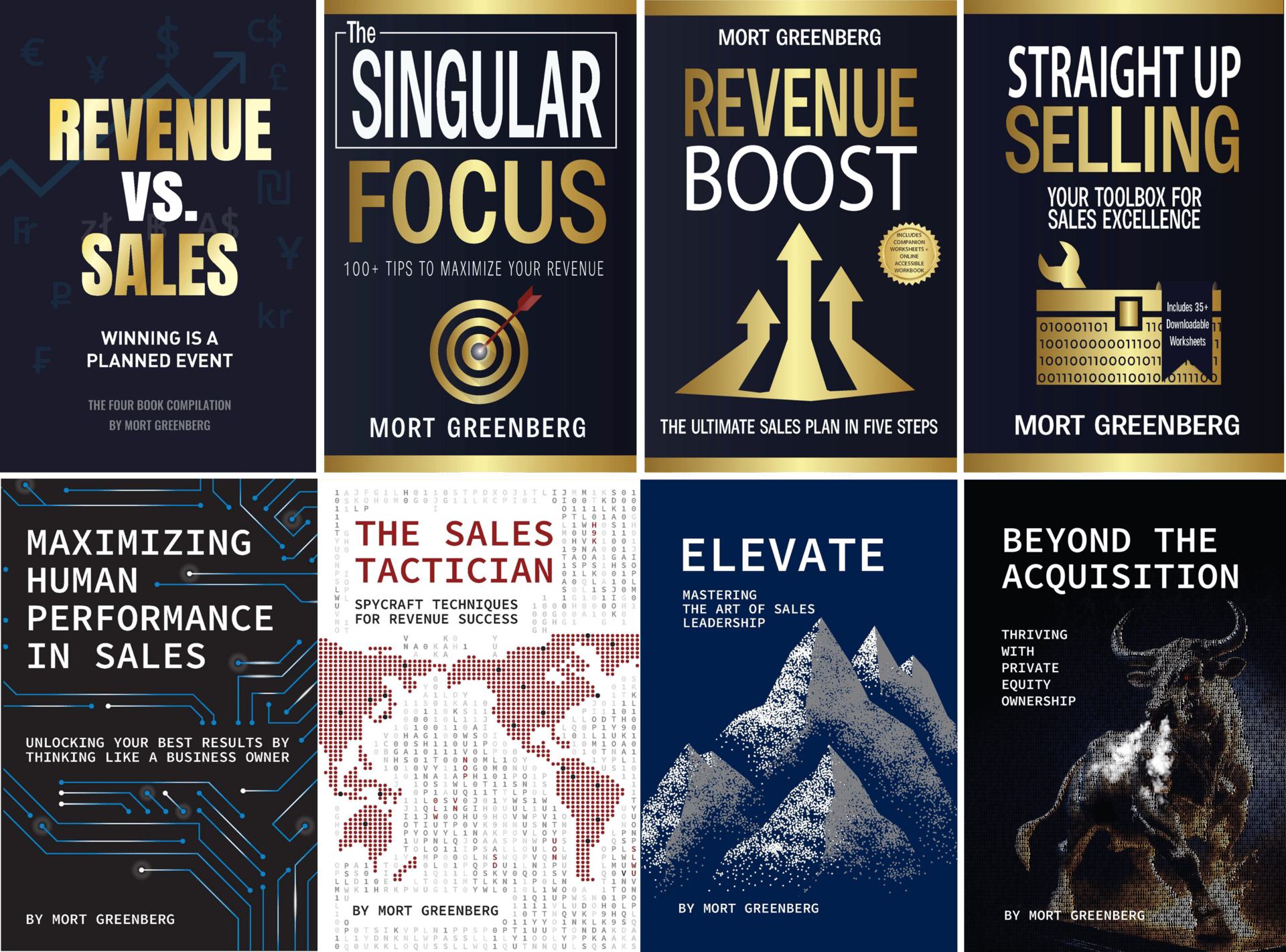
Hi,
In today’s competitive marketplace, the best sellers don’t just sell, they think like business owners. They understand revenue, margin, and cash flow, not just quotas. They prioritize long-term value over short-term wins. They make decisions with the same urgency, scrutiny, and customer empathy as the person signing the payroll.
This workshop helps sellers, managers, and business leaders embed the mindset of a business owner into everyday selling. When sellers think like owners, they don’t just close deals, they create compounding impact for the entire company.
If you want a revenue engine that’s resilient, resourceful, and obsessed with results, this mindset isn’t optional, it’s essential.
THE 3-STEP WORKSHOP
STEP 1: AUDIT YOUR BUSINESS OWNERSHIP BEHAVIORS
What to Do:
Create a scorecard using five key “ownership traits”:
Strategic decision-making
Resource awareness
Customer lifetime value focus
Initiative and accountability
Financial literacy (CAC, LTV, margins)
Ownership Score Template:
Ownership Trait | My Score (1–5) | Notes / Observations |
Strategic decision-making | Example: Prioritized long-term renewals | |
Resource awareness | Efficient with internal asks/time/money | |
Customer LTV focus | Identifies and grows top accounts | |
Initiative and accountability | Proactive vs reactive | |
Financial literacy | Understands impact of CAC, LTV, churn, etc. |
Why it Matters:
Identifies where you're operating like an owner or falling back into task-mode.
STEP 2: BUILD A PERSONAL P&L VIEW
What to Do:
Map your territory, pipeline, or book of business like a business unit:
Total revenue generated
Time invested
Account profitability or health (if known)
Churn or renewal risk
High-potential accounts or blind spots
P&L View Table (Editable Example):
Account Name | Revenue | Hours Spent/Month | Risk/Opportunity | Notes |
AI Corp | $85K | 10 | High Upside | Add Q4 proposal |
BI Labs | $32K | 14 | Churn Risk | Engage CS early |
CI Energy | $0 | 6 | Dormant | Evaluate drop strategy |
Why it Matters:
Thinking in ROI terms changes where you invest your time, focus, and team effort.
STEP 3: MAKE 3 BUSINESS OWNER-LEVEL DECISIONS
What to Do:
Document three decisions you’ll make this quarter to reflect owner-level thinking:
What are you going to stop doing?
What are you going to start doing?
What will you double down on?
Owner Decision Tracker:
Decision Type | Description | Business Impact Expected | Timeline |
Stop | Weekly meetings with dead accounts | Recovered 4+ hours/month | This week |
Start | Weekly time block for account growth | Grow 2 existing deals | Every Monday |
Double Down | Champion mapping | Shorter sales cycle | Q3/Q4 |
Why it Matters:
You move from thinking like a rep to thinking like someone responsible for outcomes, because you are.
Tips + Real-World Examples
Pro Tips:
Schedule a 90-minute quiet block,no Slack, no distractions
Invite your manager or a mentor to review your draft
Revisit your Owner Scorecard monthly
Visualize your P&L view, whiteboards or spreadsheets are welcome
Example 1:
A seller at a SaaS firm shifted 50% of their time to only top 3 accounts after doing the P&L exercise. Result: 19% increase in deal size in the next quarter.
Example 2:
A manager used this workshop to align team incentives around renewal revenue, not just net-new business. Churn dropped by 27% over 2 quarters.
Recommended Reading
Extreme Ownership: How U.S. Navy SEALs Lead and Win
Jocko Willink & Leif Babin (2015, St. Martin’s Press)
A leadership mindset guide to owning outcomes, driving accountability, and executing with clarity.The Personal MBA: Master the Art of Business
Josh Kaufman (2010, Portfolio)
A powerful overview of core business thinking, strategy, systems, value creation, and decision-making.Maximizing Human Performance In Sales: Unlocking Your Best Results By Thinking Like A Business Owner
Mort Greenberg (2025, digitalCORE Publishing)
Sales isn’t just about hitting quotas, it’s about mastering the mindset, strategies, and skills that turn professionals into industry leaders.
==
The Revenue Workshop isn’t theory. It’s a field-tested system used by real leaders, in real markets, under real pressure.
Each newsletter is based on one of over 300 workshops and worksheets found in the eight books of the RevenueVsSales.com and TheFocusedSeller.com book series.
To contact us, email [email protected]
Thank you for your time!


